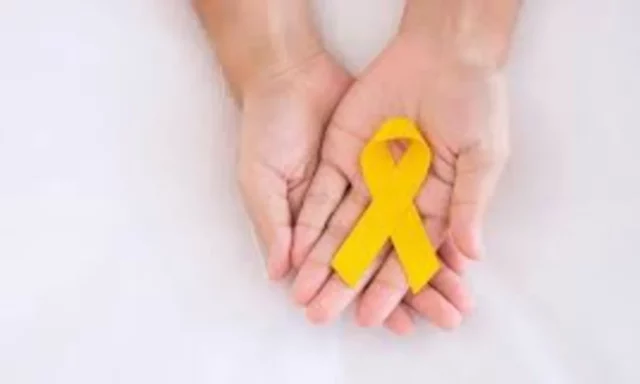Next September 10th marks the World Suicide Prevention Day, a date that should not be seen as a simple event, but as a reminder that suicide prevention is key to rescuing human lives of incalculable value.
For this reason, and in order to continue promoting actions to reduce these unfortunate events, the Ministry of Health, the Pan American Health Organization/World Health Organization – Costa Rica Headquarters (PAHO/WHO), the Caja Costarricense de Seguro Social (CCSS), the College of Professionals in Psychology of Costa Rica (CPPCR) and the 9-1-1 Emergency System, among other institutions, make a call to the Costa Rican community about “Listening is Prevention”, through a campaign of communication throughout this month of September. Alexei Carrillo, Deputy Minister of Health emphasizes that “emotional well-being can be affected by many circumstances and sometimes it is difficult to take the step to seek help; however, it is important not to try to solve it alone, there are many alternatives in the communities, in the institutions that can provide you with a safe space”.

Creating Hope Through Action
“World Suicide Prevention Day (WSPD) aims to raise awareness about suicide prevention around the world. The theme for this year is “Creating Hope Through Action”, reflecting the need for collective action to address this urgent public health issue. All of us, family members, friends, co-workers, community members, educators, religious leaders, health professionals, political officials, and governments, can take action to prevent suicide in the Region,” said Dr. Jorge E. Victoria, PAHO/WHO representative based in Costa Rica.
This campaign will have a series of educational resources to share, such as talks and conversations, materials for social networks, videos in shopping centers and banners with messages in various strategic points of the country. Also, it will have awareness spaces during national soccer matches with the support of the Union of Soccer Clubs of the First Division of Costa Rica (UNAFUT). All the materials provide a series of tips or guidelines so that anyone can become a support network for those at risk of suicide.
Risk must be addressed in a multidisciplinary way
For Dr. Ángelo Argüello Castro, president of the College of Professionals in Psychology, “since suicide affects people of all genders, ethnicities, social strata and age groups, we can understand that suicide risk must be addressed in a multidisciplinary way, considering psychological, biological, social, cultural and family aspects that could influence the behavior and thoughts of each individual”.
The reasons that can lead a person to suicidal ideation or behavior are multi-causal, that is, they do not depend on a specific situation. People make a great emotional effort to continue their day to day life and that is why it is necessary to receive professional support.
In equal measure, we must consider the impact on mental health that millions of people have experienced or are still experiencing as an effect of the pandemic; therefore, suicide prevention is of fundamental importance,” said Argüello.
Elena Amuy, director of the 9-1-1 Emergency System mentioned that from this institution “we raise our voices to make people aware of the importance of suicide prevention, we must be an integral part of the solution in our society to avoid the increase of these cases with inter-institutional work”.
Call 9-1-1
In order to receive professional support quickly, it is important that people who are experiencing suicidal ideation or those who know that someone is in this situation, can call 9-1-1 free of charge, during any day and hour of the week. In addition, the College of Professionals in Psychology makes available to people the line “Aquí Estoy” by dialing 2272-3774.
Currently, the assistance of the Psychological Support Office that is provided through 9-1-1 is financed thanks to the financial support of the Global Fund to Fight AIDS, Tuberculosis and Malaria, managed through the non-governmental organization Hivos in Costa Rica.
About Suicide in Costa Rica
In Costa Rica, from 2019 to 2021, there were 1,147 deaths by suicide, with 83% (950) being men and 17% (197) women. In 2021 alone, a total of 377 deaths from suicide and 2,156 suicide attempts (755 men/1,401 women) were recorded.
In addition, in 2021, the SE9-1-1 received 6,542 calls related to suicidal ideation and behavior, for this 2022 and according to the data registered until last August 26th, a total of 5,211 calls have been received, which represents an increase in the average number of calls of 19.48% per month compared to the previous year; this according to the data recorded by the Ministry of Health and the SE9-1-1, a situation that could be even greater because not all the people who go through this situation call to ask for support.
The Psychological Support Office, for its part and so far this year, has answered 4,809 calls related to psychological support for different reasons, where it additionally supports 14.46% of calls received by other institutions related to ideation and/or suicidal behavior.
How can we talk about this topic with those around us?
When someone expresses their suicidal ideas we should seek help immediately, because when you keep the secret from them, you are not helping; on the contrary, the opportunity to help the person at risk is being wasted.
When someone is in crisis we just have to listen to them and validate their feelings. The person needs to feel heard, understood and supported; that is the best help you can receive from those close to you. Judging only increases the risk, since the person tends to isolate himself by feeling misunderstood.
When suspecting a suicidal idea in a person, it is important to ask directly, as this opens the possibility of having a safe zone for the person to express themselves. This simple act, hand in hand with accompaniment and the activation of support networks, can considerably reduce the risk.

